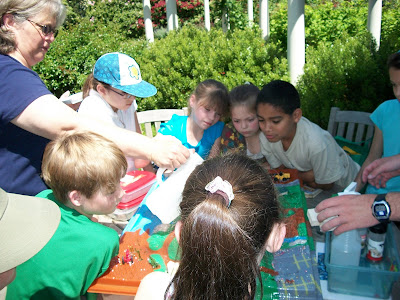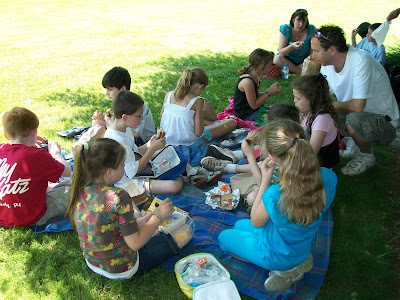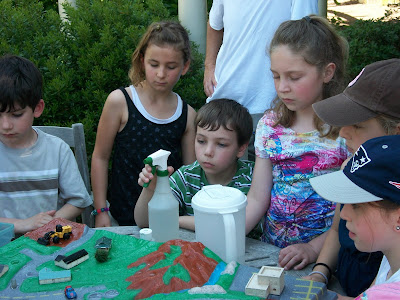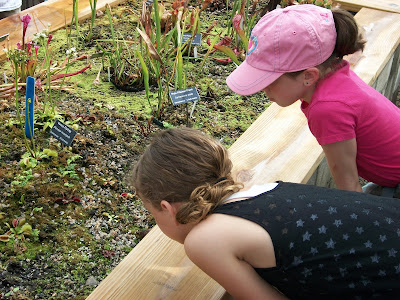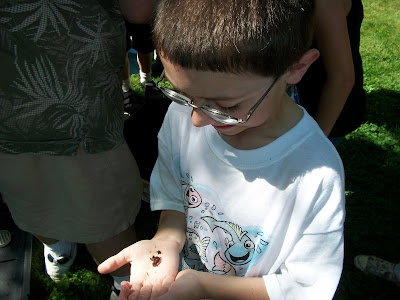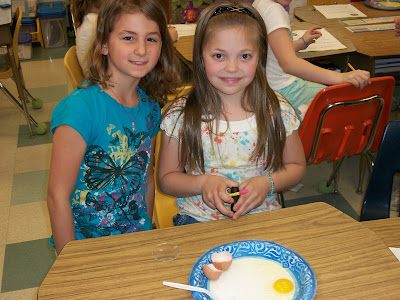










The children showed their creativity and design sense when they built gingerbread houses this week. They constructed many different and unique homes from the variety of ingredients donated by parents. When they completed their homes they arranged them on a small map according to their coordinates. Thank you to all the parents for the many donations and a special thanks to Mr. and Mrs. Ackroyd, Mrs. Roiu, Mrs. Foley, and Mrs. Wicklund for volunteering their time!
























